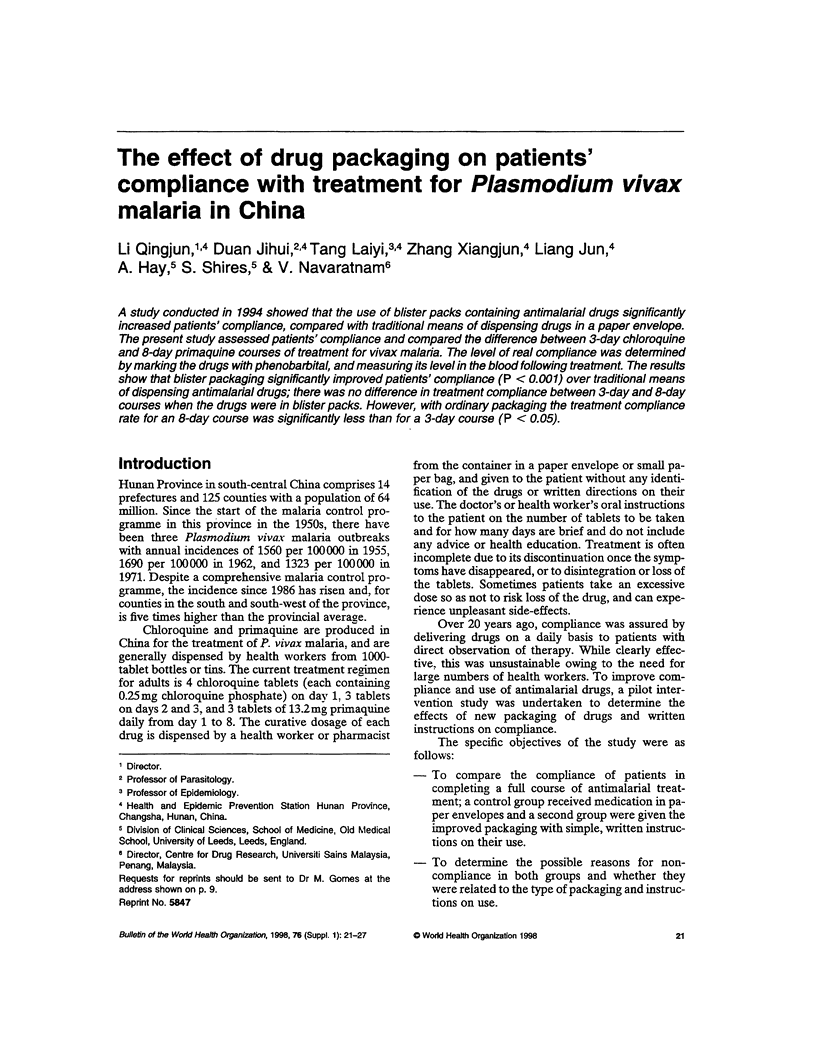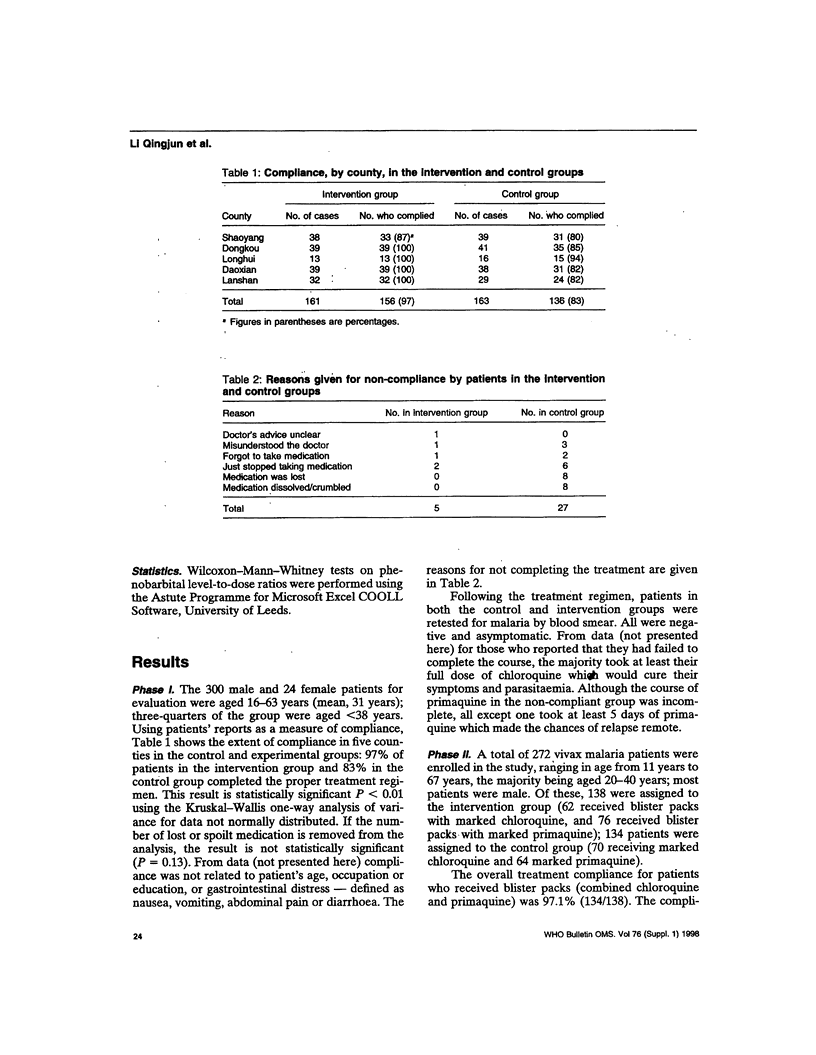Abstract
A study conducted in 1994 showed that the use of blister packs containing antimalarial drugs significantly increased patients' compliance, compared with traditional means of dispensing drugs in a paper envelope. The present study assessed patients' compliance and compared the difference between 3-day chloroquine and 8-day primaquine courses of treatment for vivax malaria. The level of real compliance was determined by making the drugs with phenobarbital, and measuring its level in the blood following treatment. The results show that blister packaging significantly improved patients' compliance (p < 0.001) over traditional means of dispensing antimalarial drugs; there was no difference in treatment compliance between 3-day and 8-day courses when the drugs were in blister packs. However, with ordinary packaging the treatment compliance rate for an 8-day course was significantly less than for a 3-day course (P < 0.05).
Full text
PDF






Selected References
These references are in PubMed. This may not be the complete list of references from this article.
- Fungladda W., Honrado E. R., Thimasarn K., Kitayaporn D., Karbwang J., Kamolratanakul P., Masngammueng R. Compliance with artesunate and quinine + tetracycline treatment of uncomplicated falciparum malaria in Thailand. Bull World Health Organ. 1998;76 (Suppl 1):59–66. [PMC free article] [PubMed] [Google Scholar]
- Huei B. L., Shen S. L., Wang K. S., Gao S. F., Cao S. Z. [The radical efficacy of pyronaridine-primaquine combination in tertian malaria]. Ji Sheng Chong Xue Yu Ji Sheng Chong Bing Za Zhi. 1984;2(4):260–262. [PubMed] [Google Scholar]
- Wang K., Liu Y. L., Zhang P. N., Liu J. X. [Relapses and indirect fluorescent antibody level in vivax malaria patients after chloroquine and chloroquine-primaquine treatment]. Ji Sheng Chong Xue Yu Ji Sheng Chong Bing Za Zhi. 1984;2(4):224–227. [PubMed] [Google Scholar]



